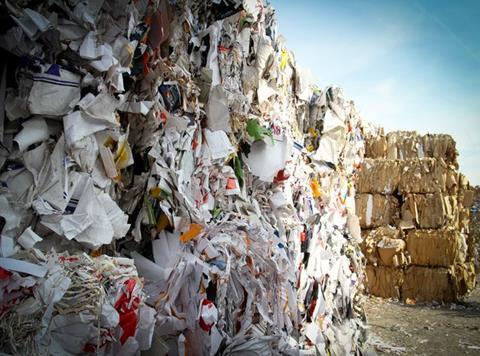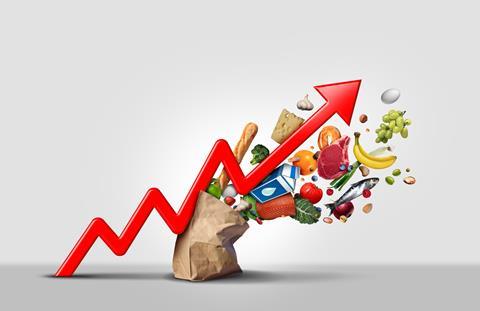
The introduction of the government’s extended producer responsibility (EPR) packaging tax has already begun contributing to rising food inflation, but the worst is yet to come, according to a new report by the Bank of England.
In its Monetary Policy Report for August, the bank says the introduction of EPR is one of the reasons UK food inflation is outstripping that seen in the EU, with food basket prices expected to rise by more than 5% by the end of Q3.
With the first bills for EPR due to land in October, the report says some suppliers have already been passing on cost increases, but the vast bulk of cost rises relating to the policy will come in the autumn.
Industry sources said the bank’s admission that EPR was already impacting inflation confirmed their fears over the policy, and cemented calls for the government to do more to ensure funds raised by the controversial policy were ringfenced.
UK challenges
The Bank of England’s report said inflation was one-and-a-half percentage points higher in the UK than in the euro area.
“There are several UK-specific factors that could account for the difference, namely higher increases in labour costs and the forthcoming introduction of the framework for the extended producer responsibility (EPR) for packaging,” it added.
“Some suppliers started passing on the expected costs of EPR in the first half of the year, ahead of the scheme’s implementation.

“This may be because some UK grocers are increasingly operating on longer-term contracts with major UK food suppliers, which is leading suppliers to be more forward-looking in their pricing strategies. That said, most of the pass-through is still likely to occur towards the end of the year, which will push up somewhat on food price inflation.
“The combination of higher labour costs and EPR has put pressure on firms to recover their margins via price increases, although many are not able to recover as much as they would like. Consequently, pressures to restore margins will persist.”
The report follows a poll of suppliers by The Retail Mind, reported by The Grocer in June, which predicted a flood of cost price increase requests later this year. Suppliers reported retailers had been pushing back strongly against attempts to get price increases through in the first half of the year.
It revealed more than 65% of suppliers said they were now expecting to have to pass on more costs later in the financial year.
Today the BRC and KPMG announced food inflation at 4.5%.
“The Bank of England has confirmed what retailers have been warning for months. Extended Producer Responsibility will inevitably drive up prices, particularly for food. Defra will need to justify these increases to consumers by ensuring the investment leads to significant changes in recycling rates,” said BRC director of food and sustainability Andrew Opie said:
”It is also pivotal that the chancellor avoids imposing further costs on retailers in her next Budget. Additional cost burdens will only fan the flames of inflation further, forcing households to pay even more for their weekly shop.”
IGD chief economist James Walton added: ”“While market forces like energy and ingredient costs may ease over time, the inflationary impact of government regulation is far more enduring.
”Regulations are intended to create social benefits but once introduced, compliance costs tend to stick, making them a long-term factor in food pricing. As leaders in the food and consumer goods industry, we must recognise that regulatory inflation is not just a short-term challenge but a strategic consideration for the years ahead.
”It’s vital that we engage with policymakers and collaborate across the value chain to ensure that sustainability goals are met without compromising affordability for shoppers.”



















No comments yet